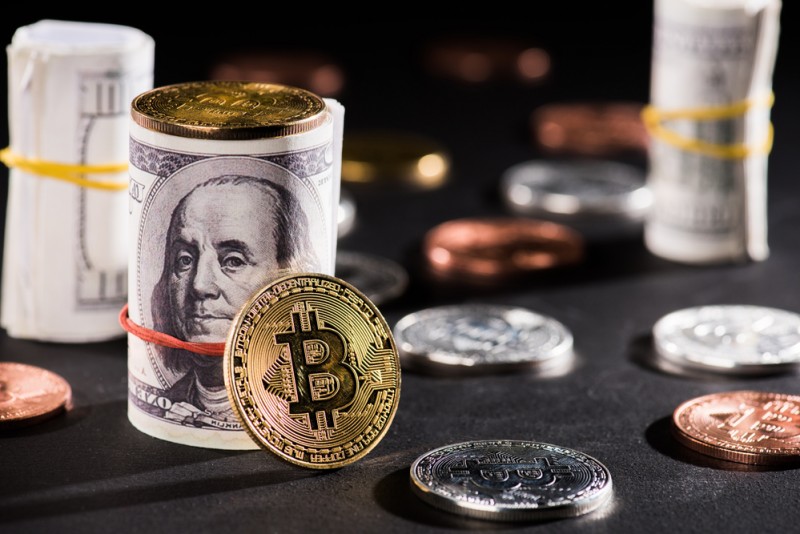Avoid Being Scammed When Buying Bitcoin - What To Keep In Mind
Bitcoin has been hitting major milestones and making headlines over the past few years, which why more people are drawn to it.
But despite the bitcoin boom, we have to admit cryptocurrency remains a risky investment option. Aside from the market’s volatility, scammers are also a pernicious problem. These unscrupulous parties want to profit from bitcoin but through nefarious means. They target clueless bitcoin buyers and traders through their carefully planned scam. It is estimated that $9.1 million a day is lost in cryptocurrency scams. You wouldn't want to become the next victim.

Common Bitcoin Scams
Here we list some of the most common scams to avoid while buying bitcoins.
Fake exchanges
It’s not uncommon to see links in social media offering desirable bitcoin deals, such as discounts of as much as 50%. Oftentimes, these are clickbaits that want to trick potential buyers into visiting their fake exchange.
Spotting a fake exchange is easy. One of the very first things to check is its domain. If it starts with HTTP, chances are, it is not a secured site and raises a red flag. Trusted exchanges use an encrypted and secured domain that begins with HTTPS. Frequently, these fake exchanges pop up but quickly disappear. They lack reliable reviews and may have a limited user base. They also tend to offer too-good-to-be-true deals.
Don’t get tempted by their very promising ads. Be sure to buy bitcoins only from trusted exchanges such as Coinmama, Binance, Coinbase, etc. Read forums or ask recommendations from friends already investing in bitcoin.
Meet in person
If you’re buying bitcoin locally, the seller might ask you to meet up in person for the payment. Unless you trust the seller, this can be a very risky deal. Aside from the risk of being duped, you might also get injured. As much as possible, you want to transact using a reliable peer-to-peer (P2P) platform that uses escrow method. These P2P platforms automatically compute the applicable charges and currency conversion; hence, you don’t require a different online calculator to calculate conversion rates. If a seller insists on meeting in person, drop the transaction and look for other potential deals.
Bitcoin transfer fraud
In this tactic, scammers randomly send emails to unsuspecting targets. They will ask the recipient to complete a fund transfer transaction; in exchange, you will get a certain percentage of the funds. For the transaction to proceed, the scammers will get your account details or require a participation fee. In most cases, the transaction gets completed without the victim receiving anything. Their fraudulent tactic is very encouraging that many fall victim to this form of scam.
Scam coins
Aside from bitcoin, there are many other alternative coins (altcoins) worth buying. However, you should be cautious as not all cryptocurrencies in the market are genuine. Scam coins offer very lucrative pre-sale deals. Usually sold via private sales, they feature attractive websites and promising ROI, and boasts of a large user base. The early holders can pump the price and later on dump and exit once they’ve gained profit. Fake coins frequently offer free coins to entice new users and to grow their communities. They present white papers with dubious traction metrics to attract potential investors. Some scam coins even use bitcoin in their name to mislead buyers.
General Tips to Avoid Getting Scammed in Bitcoin Buying
Who doesn’t want to get rich? Bitcoin scams leverage on this innate desire and gullibility of victims. When you buy bitcoin, you should not look at it as a get-rich-quick thing. There’s no shortcut in crypto asset investment. Here are some general warnings to keep in mind while buying bitcoin.
- Never trust too-good-to-be-true offers, whether you receive them through email, read them at social media sites, or find their advertisement in a reputable website.
- Be cautious about anyone claiming to help you buy bitcoin at a discounted price. Nefarious cybercriminals might be spying on your personal information or up to some devious intention.
- Avoid engaging through social media accounts or emails of legitimate bitcoin trading platforms and brokers, as these accounts can be impersonated or hacked.
- Always transact using trusted, verified bitcoin exchanges. Although numerous new platforms may offer lucrative rates, reputation should be your top consideration to ensure security.
- Keep your bitcoin stored in a secured wallet or cold storage. Bitcoin exchanges are becoming a pricy target of cyber syndicates and as such, keeping money on the platform entails unnecessary risk. Move your crypto-assets out of your exchange immediately after trading.
Lastly, make sure you spend time understanding how bitcoin works and the latest strategies to stay safe while trading. By following these tips, hopefully, you can avoid falling victim of scammers.

